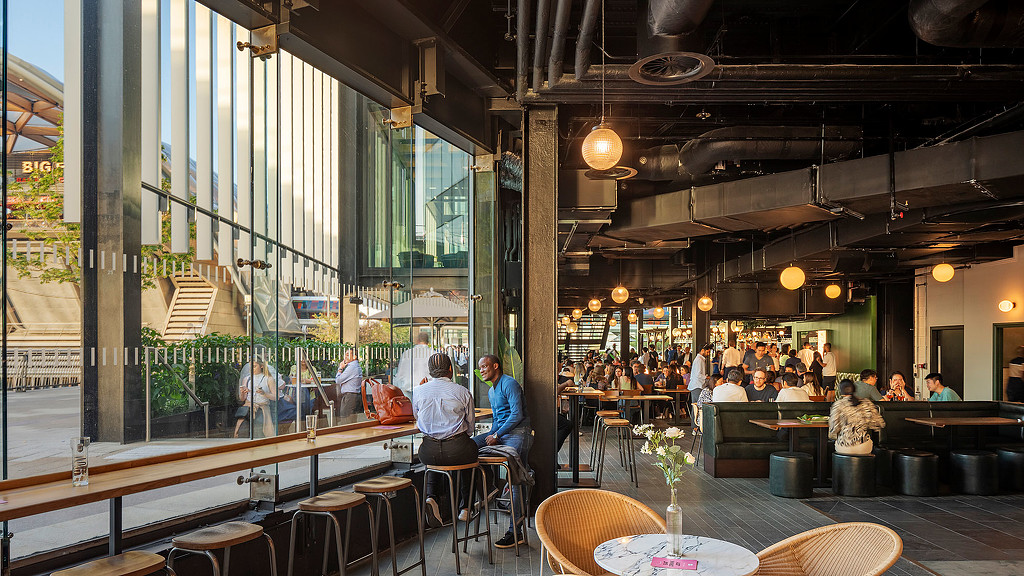Post-Pandemic, London Is Drawing Back People, Jobs, and Businesses
May 03, 2024 | By Sofia Song, Stella Donovan, and Jacqueline Scherr
Gensler’s latest cities research, “The Return of the City: A 2024 Retrospective of the City Pulse,” presents a closer look at six different cities around the world: Austin, London, Mexico City, New York, San Francisco, and Singapore. We pulled these cities from the headlines to learn deeper lessons about how they navigated the public health crisis and understand what the future may hold. This blog explores London, one of the original four cities profiled in Gensler’s City Pulse study.
During the pandemic, London suffered higher COVID-19 infections and casualties than other U.K. regions, triggering strict restrictions that strained the city. Additionally, one study estimated nearly 700,000 people left London in 2020–2021, mostly foreign-born workers who were doubly motivated to relocate by the pandemic and Brexit. However, as the city emerges from the public health crisis, “boomerang Londoners” are returning for the social, cultural, and career opportunities that have always made the urban center a magnet. And with new office and mixed-use developments planned for Central London and Canary Wharf, the city is expected to rebound.
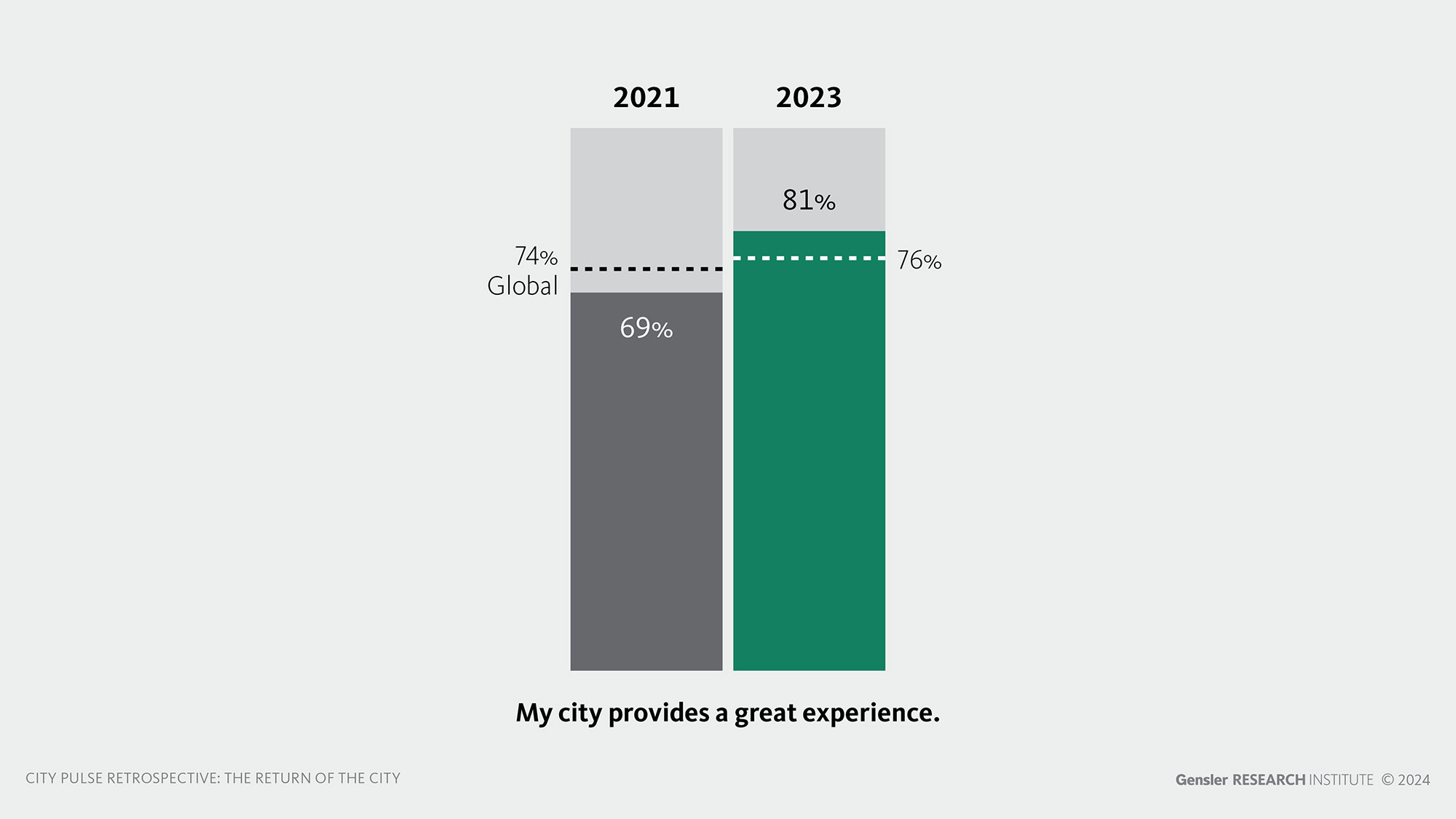
More Londoners feel their city offers a great experience.
A majority (81%) of London respondents feel their city provides a great experience — a 12% increase from 2021. Additionally, significantly more Londoners believe their city has clean air (40% in 2023 vs. 23% in 2021). However, 61% of Londoners indicated they are satisfied with their current living situation — a 6% decrease from 2021. More Londoners also said their city was too noisy (56% in 2023 vs. 53% in 2021), and at risk of losing its cultural heritage (49% in 2023 vs. 40% in 2021).
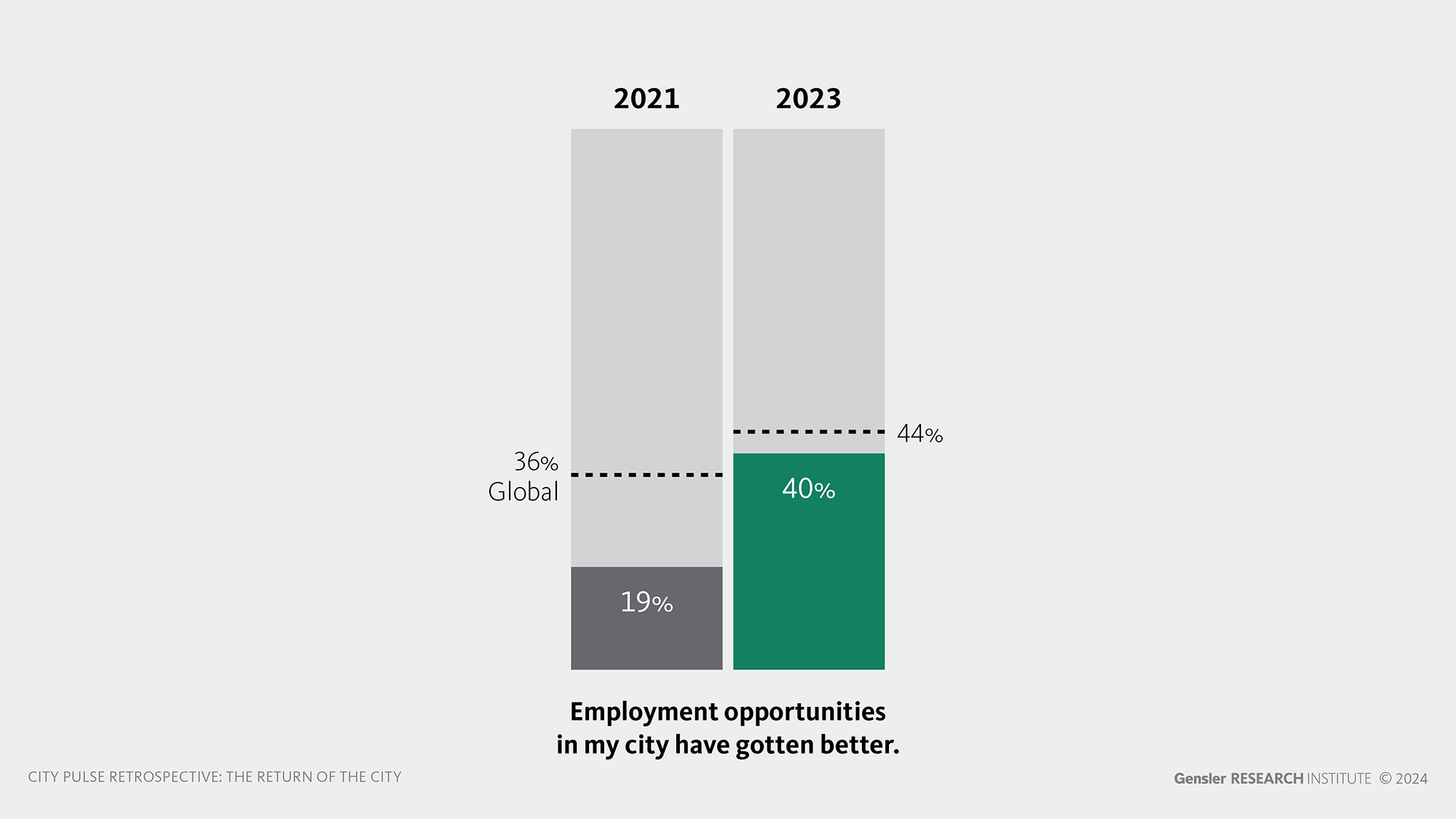
Londoners are feeling bullish about work and employment opportunities.
Londoners are feeling significantly better about work than they did three years ago. Our data shows 41% of Londoners feel their opportunities for career advancement have improved — a 26% increase from 2021. Similarly, 40% of Londoners think that employment opportunities in their city have gotten better, compared to 19% in 2021. When asked if the ability to work remotely had made them think about moving to a different part of the city, 31% of respondents said yes (a decrease of 9% from 2021), while 41% have thought of moving out of the city completely as a result of remote work. A majority (80%) of the Londoners we sampled are satisfied with their city as a place to work.
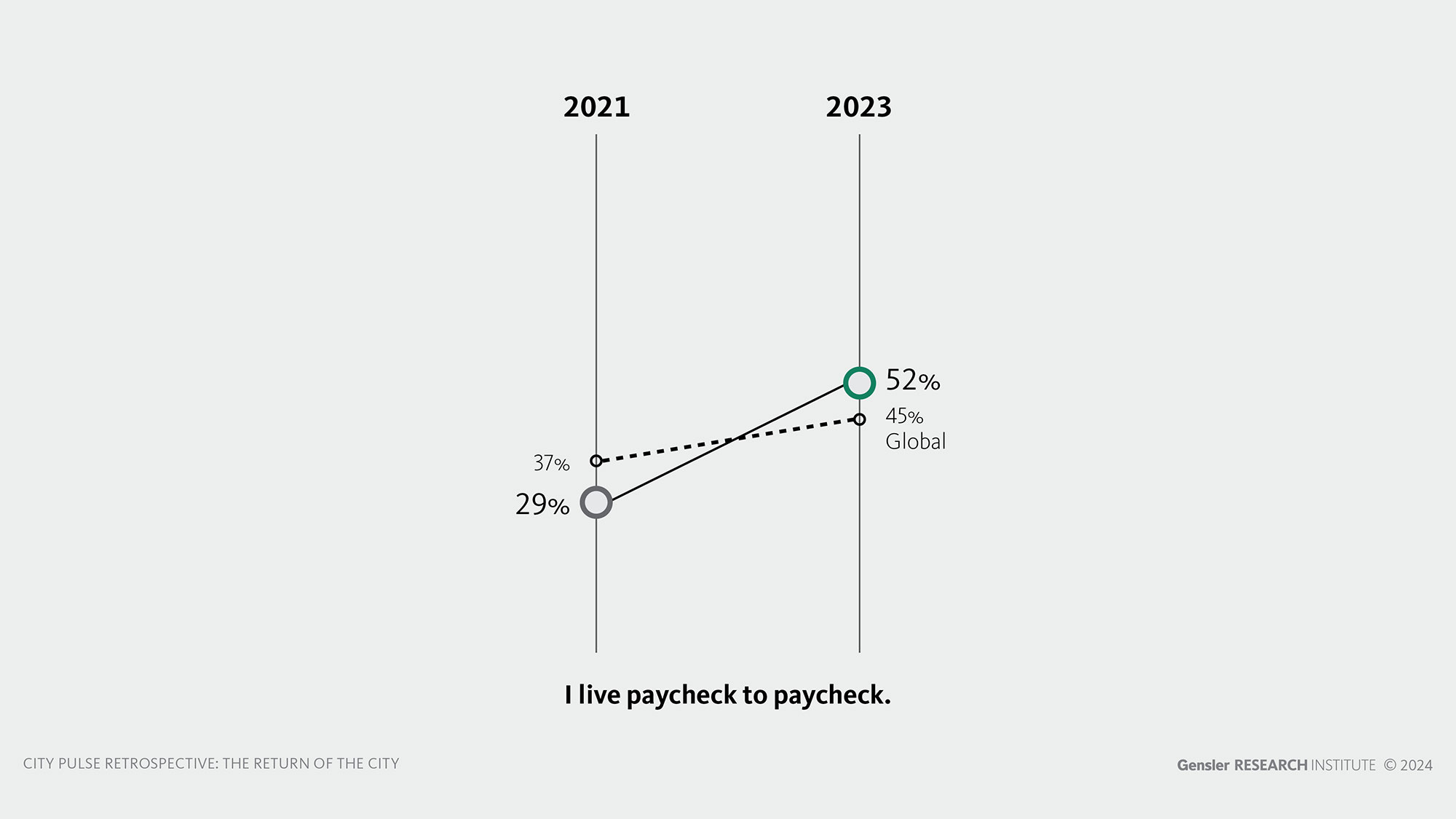
Neighborhood affordability is still a struggle for Londoners.
About half (52%) of London respondents say that they are living paycheck to paycheck, compared to 29% in 2021. That 23% increase is the largest we observed in the study. Additionally, a staggering 77% of London residents feel that living in their neighborhood is not as affordable compared to a year ago. That’s one of the highest numbers in our study and a 20% increase from 2021.
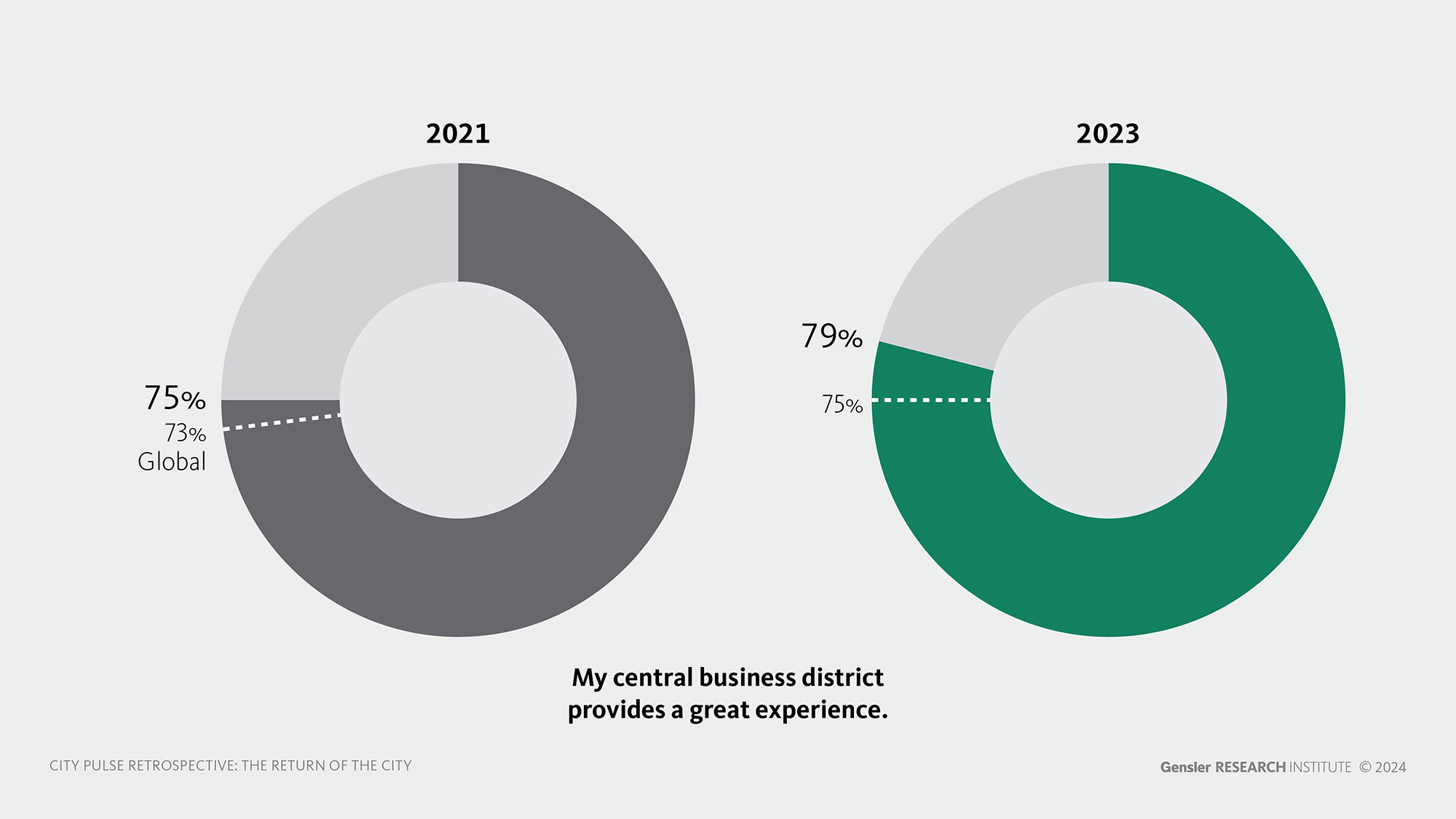
Londoners feel the city of London and Canary Wharf provide a great experience.
When asked about the city of London and Canary Wharf (two of London’s business districts/commercial cores), 79% of Londoners feel they provide a great experience, a 4% increase from 2021. Among the physical improvements people want to see in the central business districts, adding more green space (43%), improving the streetscape (33%), and reducing traffic congestion (32%) were the most selected answers.
Despite the hurdles faced, London is succeeding in drawing back residents, employees, and businesses to its vibrant streets.
While the pandemic made housing less affordable and widened economic inequality gaps, COVID-19 also made London more livable. The city offered more opportunities for outdoor dining, added more bicycles and scooters, and improved air quality. Additionally, workers steadily made their way back to the office. Recruitment agency Hays found that about 43% of employees worked exclusively in the office between August and September 2023, compared to 36% during the same period in 2022. Fewer than 40% were working in a hybrid mode. While these numbers do not match pre-pandemic levels of office attendance, the upward trend indicates a steady recovery.
“London is a trillion-dollar European economy and continues to pioneer in innovation,” said Richard Harrison, co-managing director of Gensler London. “It’s a hugely diverse city with some of the best talent. It is a fundamental global presence.”
For media inquiries, email .
